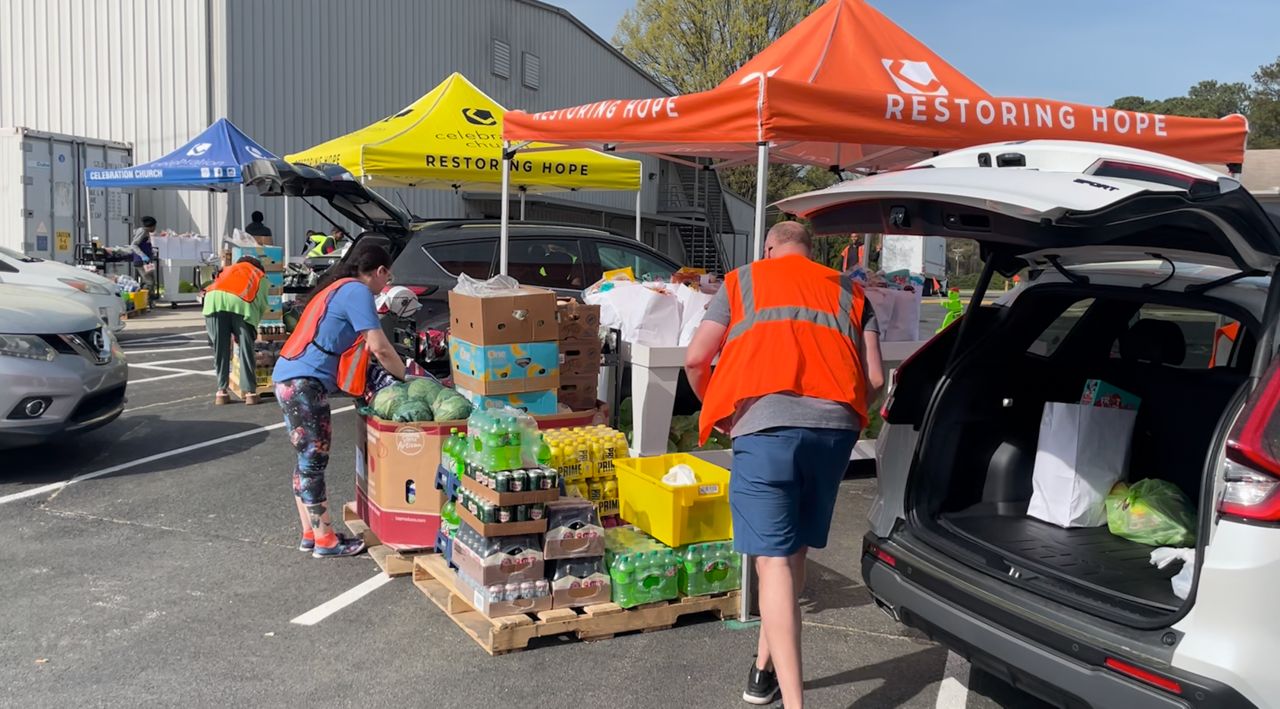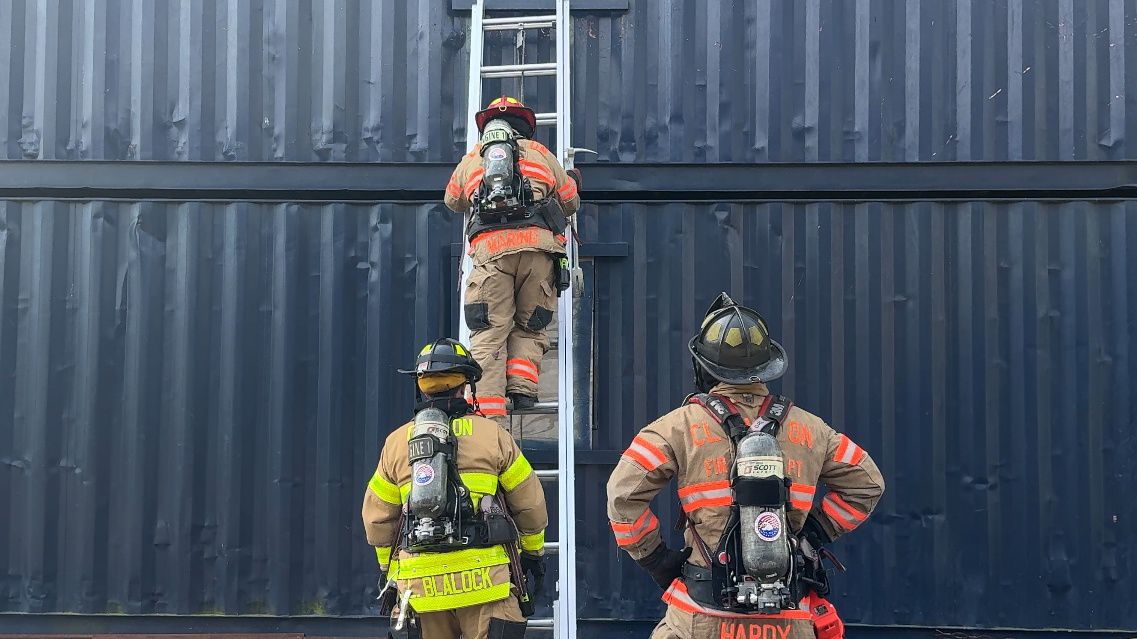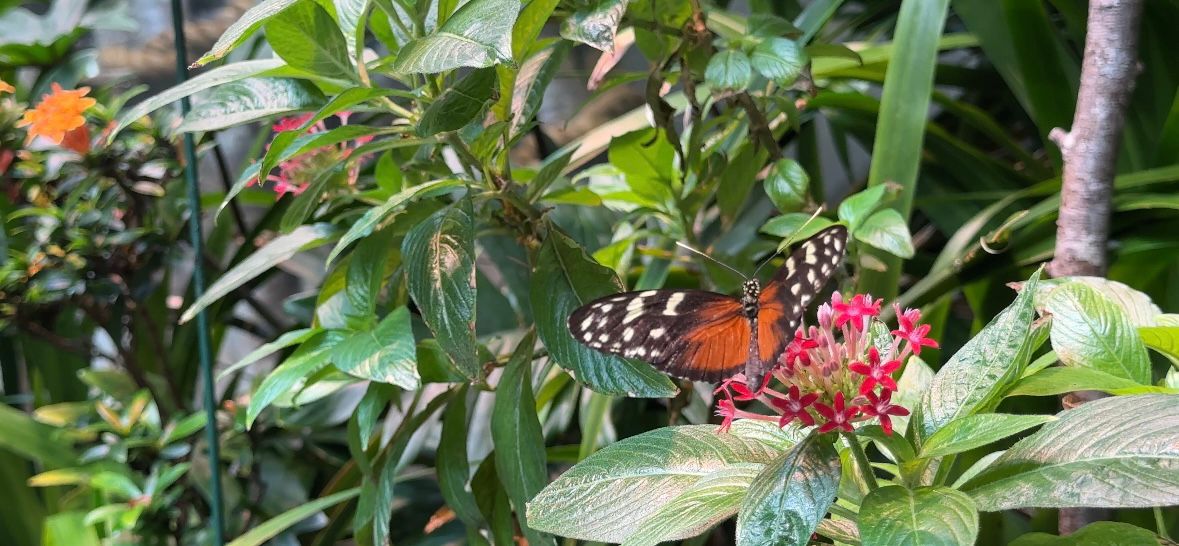LEWISVILLE, N.C. — Many crops took a hit this year with the dry and hot temperatures that lasted for months, including thousands of licensed producers of hemp.
What You Need To Know
- North Carolina's hemp industry has been booming since 2017 but the summer drought hit the crop hard
- Plants that are normally 4 to 7 feet tall are around 1 to 3 feet
- Allen Pickett, founder of Honeybee Hemp Farms, started cultivating hemp after seeing friends die from opioid and prescription drug abuse
- The farm is hosting a hemp festival Saturday
Different breeds of hemp plants will flower at different times but this is a peak harvest time.
North Carolina’s hemp industry has been booming since 2017, with over 1,500 licensed producers across the state like Allen Pickett of Honeybee Hemp Farms.
“There's so much variety and the amount of plants that we're able to grow in this area of North Carolina and how they interact with each other and other living organisms,” Pickett said.
He started growing hemp on his own a few years ago but got into the industry after seeing friends die from opioid and prescription drug abuse.
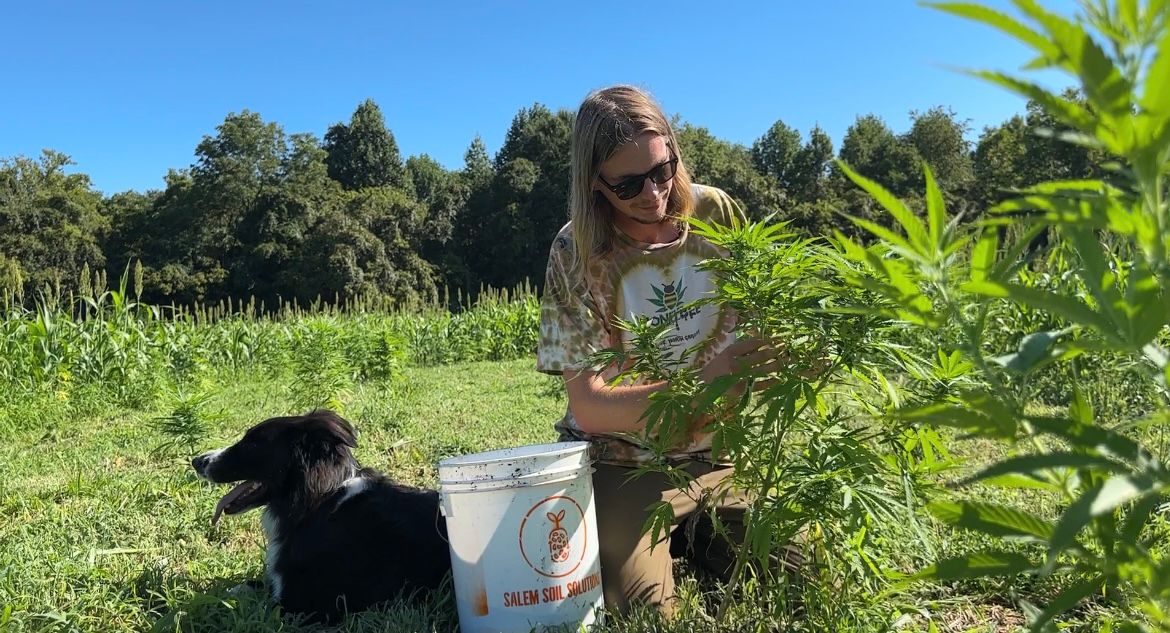
“Experiencing that at a pretty young age really felt like for me a psychological death. And so at that point onward, I knew that I wanted to do anything and everything I could to help other people and then bring awareness to that,” Pickett said.
The farmer has developed better ways to care for his crops over the years, including regenerative farming. He brews natural worm casting fertilizer to spray on his plants and keeps bees to help pollinate cover crops when hemp isn’t growing. Hemp is fertilized by the wind.
“We're able to culture different microbes and use different natural extracts from plants on this farm in order to put those into our cash crops,” Pickett said.
The drought that plagued many farmers this summer has stunted some of Pickett’s hemp plants.
“These 90- to 100-degree days from the whole month of May through early July was quite a struggle for sure,” he said.
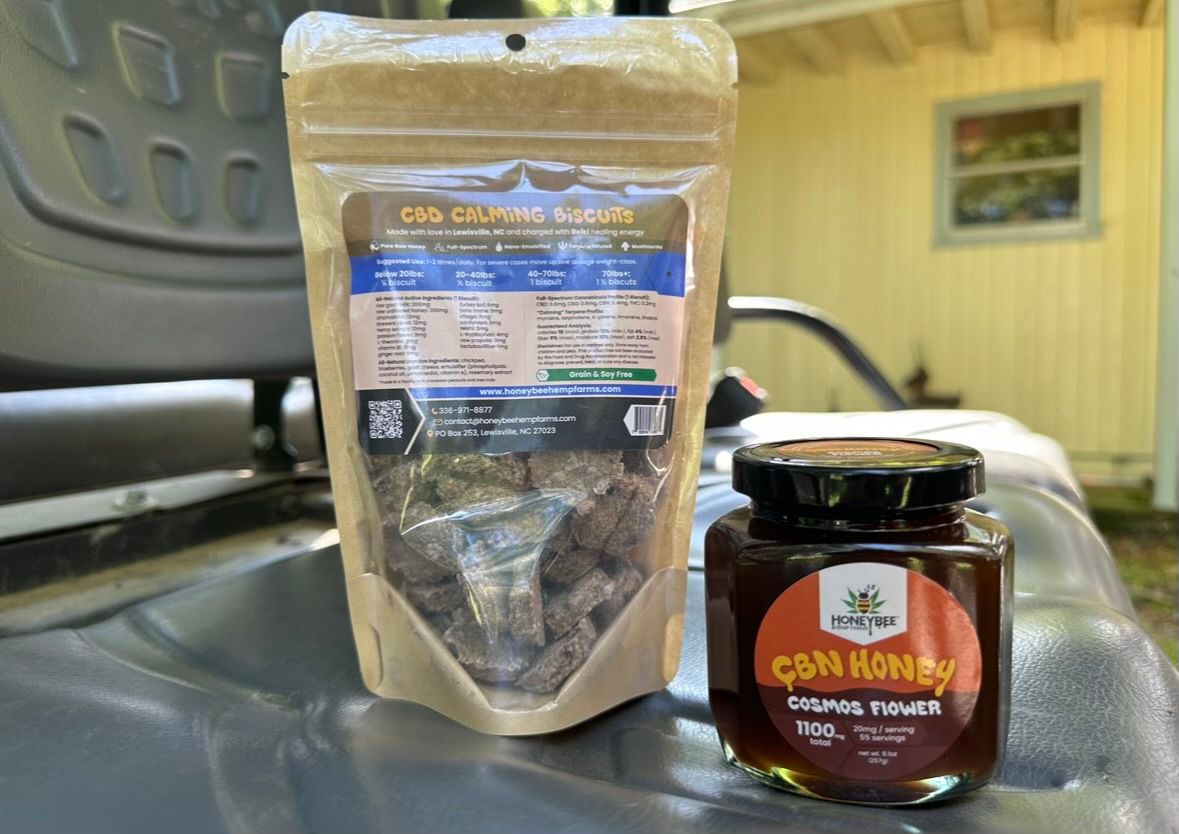
He says a trick to growing hemp is making sure the roots are moist, which means watering almost every day, hoping for rain and battling drip line issues.
“Normally, a lot of these plants would be 4-7 feet tall at this point, you know, and three or four feet wide. So certainly, considerably larger than they are now,” Pickett said, pointing to plants only 1-3 feet tall.
U.S. Department of Agriculture regulations on hemp growing have not changed in the past few years.
Recently recreational marijuana sales to all adults 21 and over began on N.C. tribal land, which might lead to changes for hemp farmers in the future.
Hemp and marijuana are considered the same plant, but hemp usually is categorized by a lower content of the intoxicating compound tetrahydrocannabinol, also known as THC. The THC content of hemp, at 0.3%, is not likely to produce the feeling of being “high.”
Hemp often is cultivated for fiber and cannabidiol oil, or CBD, which may be added to food, drinks and beauty products.
“I'm hopeful that it's going to go in a way where it remains in the hands of smaller and some larger farms in the state. And it's looking like a lot of people are going back to CBD products," Pickett said. "And that's because manufacturers are learning how to make more effective, better ones and dialing in the dosage."
Pickett makes hemp-infused honey and hemp dog biscuits, and grows mushrooms and other crops on his farm.
He is hosting a hemp festival at his farm on Sept. 14 in Lewisville.







